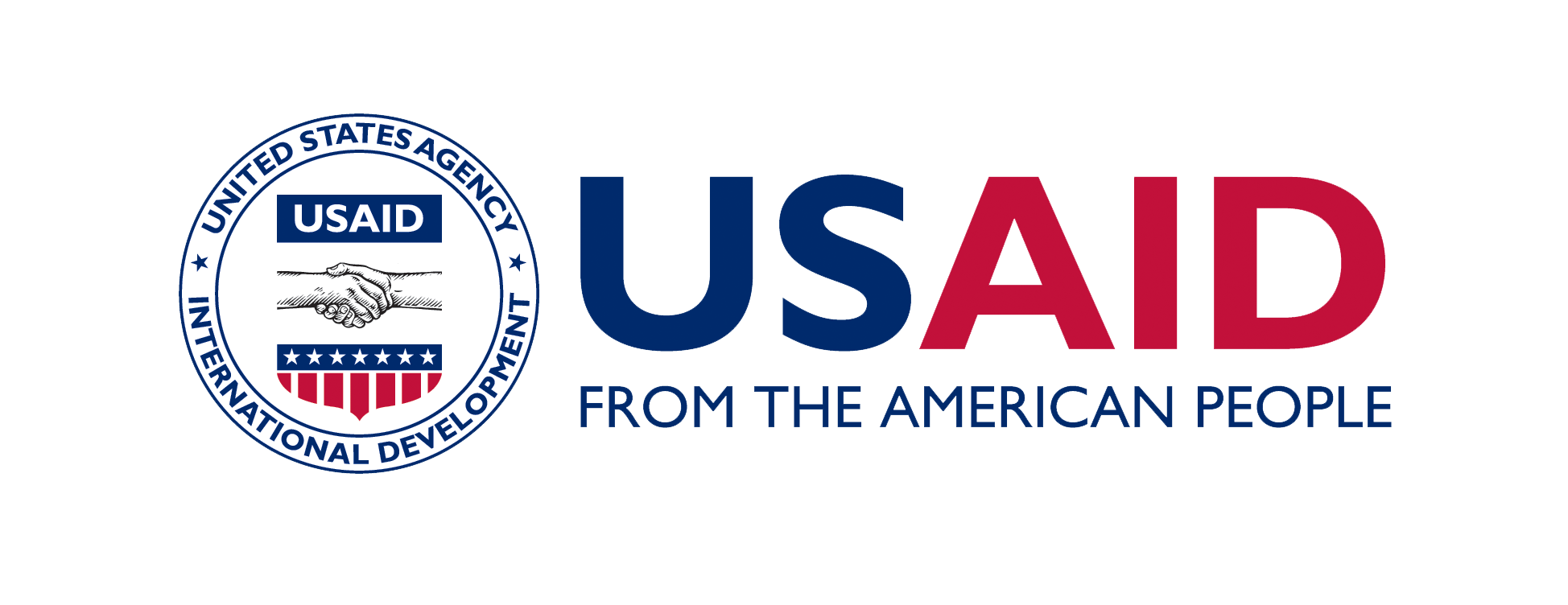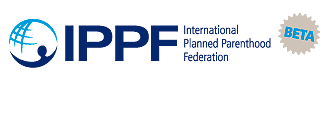This post is also available in: French
Thursday November 14, 2013
The Role of the Private Sector in Achieving FP2020 Goals
Karl Hofmann, President and CEO, Population Services International
Karl Hofmann is the President and CEO of PSI (Population Services International), a non-profit global health organization based in Washington, D.C. PSI operates in 69 countries worldwide, with programs in family planning and reproductive health, malaria, child survival, HIV, maternal and child health, and non-communicable diseases. For more than 40 years, PSI has measurably improved the health of people living in resource-poor communities in the developing world. PSI builds local capacity to solve local challenges and make comprehensive, quality health care, products and services accessible. PSI works at scale where the need is greatest. A hallmark of PSI’s work is providing real value for those who fund the organization. In 2012 alone, PSI prevented 237,129 deaths due to malaria, diarrhea and pneumonia; 5,255,209 unintended pregnancies; 203,198 HIV infections; and 14,452 maternal deaths. As PSI looks to the future, the organization will focus on developing new and innovative models for expanding access to health care, products and services to address the ever-changing health burden faced by those living in resource-poor communities around the world. Prior to joining PSI in 2007, Mr. Hofmann was a career American diplomat for 23 years. He served as U.S. Ambassador to the Republic of Togo, Executive Secretary of the Department of State, and Deputy Chief of Mission (senior career diplomat) at the US Embassy in Paris, France. Mr. Hoffman is a graduate of Georgetown University and the National Defense University. He is a director of the U.S. Global Leadership Campaign, a member of the American Academy of Diplomacy, a member of the Board of Directors of the One Acre Fund, and a member of the External Board of Advisors of Pennsylvania State University’s School of International Affairs.
Balancing Ideals with Pragmatism in the Global Sexual and Reproductive Health Agenda
Purnima Mane, President and CEO, Pathfinder International
As President and CEO of Pathfinder, Dr. Purnima Mane leads Pathfinder’s efforts in developing ground-breaking programs on sexual and reproductive health in more than 20 countries and leading global advocacy on sexual and reproductive health policies and rights. Dr. Mane has had a long career in the United Nations prior to joining Pathfinder International. In her previous role as Deputy Executive Director, United Nations Population Fund, she strengthened UNFPA’s work at the country and regional levels and spearheaded an evidence-informed, scientific approach, grounded in human rights towards the Fund’s programs on sexual and reproductive health for women and young people. She was responsible at UNFPA for fostering global, regional and country level leadership on the visionary Program of Action of the International Conference on Population and Development and accelerating its implementation during its final five years.
Determinants of a Successful Family Planning and Reproductive Health Program: How to Design for Impact and Achieve Meaningful, Measurable Results
Diana Silimperi, Division Vice President, International Health, Abt Associates
Dr. Diana Silimperi, Division Vice President for International Health at Abt Associates, is a public health pediatrician and epidemiologist with more than 25 years of global experience leading the implementation of primary health care and health system strengthening programs in over 30 developing countries in Africa, Asia and Latin America. Dr. Silimperi has specialized in the design, implementation and monitoring of maternal, newborn and child health, family planning, and TB/HIV program interventions. She is also an expert in health system strengthening, with in-depth experience in quality of care, performance-based financing and rebuilding systems in post-conflict countries. She has been an advocate for the special health needs of the urban poor throughout her career, and is a founding member of the International Society for Urban Health. Dr. Silimperi earned both her B.S. in Zoology/Psychology and her M.D. from Duke University, where she was elected to Phi Beta Kappa and the Alpha Omega Alpha Honor Medical Society.
Family Planning in the Social Insurance Scheme
Fasli Jalal, Chairperson, National Population and Family Planning Board Indonesia (BKKBN)
Prof. Fasli Jalal is the chairperson of theNational Population and Family Planning Board (BKKBN). Before being appointed as the new BKKBN Chairperson, Prof. Jalal was the former Vice Minister of National Education from 2010-2011. He has also been a Professor in Clinical Nutrition at Andalas University, West Sumatra and holds a PhD degree in Nutrition from Cornell University, USA, and has been awarded the Henry-Kauffman Prize for his contribution to advancing national higher education in 2011 and the Asia Pacific Consortium of Public Health Award. Prior to his assignment in the Ministry of National Education in 2001, he worked at the Bureau of Health and Nutrition at the National Planning and Development Board (BAPPENAS) starting in 1991. During his professional career, he has also worked as consultant with the World Bank, the Asian Development Bank (ADB) and the International Monetary Fund (IMF).
Recipes for Successful Collaboration Between Local and International Organizations
Joel Lamstein, President, John Snow, Inc.
Joel Lamstein is co-founder and president of John Snow, Inc., an international public health consulting firm with more than 2,000 people stationed in the United States and throughout the world working to enhance the lives of underserved and vulnerable populations. Lamstein is a senior lecturer at both the Harvard School of Public Health and at the Sloan School. He is a frequent lecturer on organizational strategy and non-profit management at The Wharton School, University of Pennsylvania, The Kennedy School of Government, Harvard University, the Sloan School, and at MIT.
An Innovative Collaboration to Build the Capacity of Frontline Health Workers to Provide Family Planning Services
Ronald Magarick, Vice President, Technical Leadership, Jhpiego
Dr. Ron Magarick has worked for more than 35 years in the field of reproductive health education and training. He serves as Vice President of the Technical Leadership Office, where he oversees Jhpiego technical initiatives in more than 50 countries in areas such as HIV/AIDS, maternal health, malaria, TB, family planning and global learning. Previously, Dr. Magarick was Jhpiego’s Director of Global Programs, overseeing implementation of Jhpiego programs around the world. He also has served as Jhpiego’s Asia Director and Africa Director. Dr. Magarick has chaired numerous USAID and WHO working groups, including the Steering Committee of the WHO Implementing Best Practices initiative. He holds a faculty appointment as Assistant Professor in the Department of Gynecology and Obstetrics at the Johns Hopkins University School of Medicine, with a joint appointment in the Population and Family Health Sciences Department of the Bloomberg School of Public Health at Johns Hopkins University.
The Evolution of International Non-Governmental Organizations: the Transitioning Role of IntraHealth’s Headquarters
Maureen Corbett, Vice President for Programs, IntraHealth International
Maureen Corbett has served IntraHealth International’s mission of empowering health workers to better serve communities around the world for more than two decades. As VP of Programs she oversees a portfolio of programs in more than 30 countries and several hundred staff who work to improve health workforce performance, strengthen health systems, harness technology, leverage partnerships, and ultimately improve the health of women, children, families, and communities. Ms. Corbett is recognized for her leadership and perspectives on family planning and maternal and reproductive health. Before she became vice president in 2004, Corbett held various managerial, technical, and leadership roles at IntraHealth. Ms. Corbett holds a master’s degree in international administration from the School for International Training’s Program in Intercultural Management.
Choice is Not a Singular Noun
Michael Holscher, Interim CEO, Marie Stopes International
Michael Holscher currently serves as CEO of Marie Stopes International. He is an international health and development expert with more than 20 years’ leadership experience. Michael has provided invaluable programmatic and technical leadership to multi-country public health programs and worked in Africa, Asia, Eastern Europe and Latin America. His expertise includes behavior change communications and social marketing for health; family planning and HIV/AIDS-related service delivery; program strategy, design and evaluation; and business development.
Creating Provider Incentives and Aligning Resource Streams to Assure Quality Reproductive Health and Family Planning Service Access
John Pollock, Ag. Vice President, Center for Health Services, Management Sciences for Health
John Pollock serves as Acting Vice President, Center for Health Services and as the Global Technical Leader for Health Service Delivery for Management Sciences for Health. Mr. Pollock leads and directs the conceptualization, standardization, development, and implementation of MSH Health Delivery Systems strategies and interventions, working to strengthen MSH’s projects and program results. Among his global responsibilities, Mr. Pollock maintains and disseminates state of the art practices in HSD within current projects and in new project design. He also provides strategic leadership to the development of a global network of MSH professionals supporting HSD. He oversees the development and documentation of successful and innovative tools for HDSS projects and results. He serves as a principal technical advisor in HSD for MSH, working in multiple countries. He synthesizes knowledge and expertise from all field projects and identifies best practices applied in projects and in project design. He also provides supervision, operational support, strategic guidance, and technical assistance to the Africa Strategies for Health Project (ASH) and the Zambia Prevention, Care, & Treatment (ZPCT2) Project. He also coordinated new business development efforts for the MSH Center for Health Services. Mr. Pollock earned an MALD from the Fletcher School of Law and Diplomacy.
Communicating Research and Data Effectively to Impact Policy and Programmatic Change
Cynthia Summers, Vice President of Public Education, Guttmacher Institute
Dr. Cynthia Summers joined the Guttmacher Institute as Vice President for Public Education in September 2012 and has been Acting President with two of her colleagues since April 2013. She leads a diverse and growing array of communications and publications activities at the Institute, providing vision and creative input for a team of communications specialists, science writers, editors, production staff and web experts. Prior to joining Guttmacher, Dr. Summers served as the Executive Director of Health Planning at the New York City Department of Health and Mental Hygiene, where she identified policy, programmatic, and operational opportunities to improve the City’s health care system. She received her doctorate in public health from the University of Illinois and Chicago, where her research was focused on reproductive health and health disparities.
Is 2 Billion Africans by 2040 a Problem?
Alex C. Ezeh, Executive Director, African Population & Health Research Center
Alex Ezeh is the Executive Director of African Population and Health Research Center (APHRC) and honorary professor of public health at the University of the Witwatersrand, South Africa. Dr. Ezeh joined APHRC in November 1998 from Macro International Inc. (USA). In 2000, he was appointed Director of APHRC and charged with the responsibility of leading the then fellowship program of the Population Council to become an independent entity. Dr. Ezeh has since guided APHRC to become one of Africa’s foremost regional research centers addressing population, health and education issues. Dr. Ezeh also directs the Consortium for Advanced Research Training in Africa (CARTA), a multi-country multi-university initiative to strengthen the training and retention of academics at African universities, with special focus on public and population health. Dr. Ezeh has published extensively onpopulation and health issues in sub-Saharan Africa and serves on a number of institutional boards and international panels where he continues to contribute to global discourse on population and health issues. He received his PhD in Demography from the University of Pennsylvania in 1993.
What to do with a PhD Besides Hang it on the Wall: Alternative Career Paths to Academia
Sarah Clark, Vice President and Director, Center for Policy and Advocacy - Futures Group
Dr. Sarah Clark is a distinguished international development leader with more than 30 years of demonstrated experience in positions within government and philanthropic organizations. She currently serves as vice-president and director for the Center for Policy and Advocacy at Futures Group. As the director of the Health Policy Project, she provides strategic direction for a $250 million, five-year cooperative agreement financed by USAID to improve health policy and outcomes globally. She oversees a headquarters-based staff of almost 60 and an overseas staff of over 200. She provided similar leadership to the Health Policy Initiative, Task Order One, completed in 2010, and she continues oversight for other task orders in Tanzania, South Africa and for HIV costing.
Dr. Clark earned a PhD from Brown University in sociology with a specialization in demography.
Friday, November 15
Global Advocacy for Maternal, Sexual, and Reproductive Health and Rights
Jill Sheffield, President, Women Deliver
Jill Sheffield is the founder of Women Deliver, a global advocacy organization working to generate political commitment and financial investment for fulfilling Millennium Development Goal 5 - to reduce maternal mortality and achieve universal access to reproductive health. Most recently, Sheffield was one of few civil society representatives appointed to the UN Secretary General’s Commission on information and Accountability for Women’s and Children’s Health. She currently serves on the board of the Pangaea Global AIDS Foundation. Jill is also the founder of Family Care International (FCI), a distinguished non-governmental organization and winner of the 2008 United Nations Population Award for outstanding work in sexual and reproductive health and rights. Jill completed advanced degrees at Columbia University, Teachers College, where she was later recognized as a distinguished alumna for her international work in women’s health and education, and she also received the American Public Health Association’s Lifetime Achievement Award in 2008. She was Director of International Programs at the Carnegie Corporation, and founded FCI in 1987 in response to the call at the Women’s Decade Conference in Nairobi which identified the silent tragedy that one woman dies each minute from pregnancy related causes. Though she has played a central role in several key world conferences, Jill Sheffield believes her true education came when she worked in the family planning/reproductive health outpatient clinic of Pumwani Maternity Hospital in Nairobi, Kenya.
The Entrepreneurs Who Direct DKT Social Marketing Programs: How and Why DKT Hires for These Positions
Christopher Purdy, Executive Vice President, DKT International
Christopher Purdy is the Executive Vice President of DKT International. From 1996 to 2011, he served in various positions, including country director in Ethiopia, Turkey, and Indonesia, where he managed the largest social marketing family planning program in the world. His professional interests center on improved health, socially responsible enterprises, and digital health communications.
Taking an Organization through a Phase of Growth, Renewal and Upward Trajectory
Suzanne Ehlers, President and CEO, Population Action International
Suzanne Ehlers has worked for the last 15+ years to promote family planning and reproductive health as a basic right for women across the globe. Ms. Ehlers has led PAI since May 2009. Ms. Ehlers and PAI build the case for reproductive health as a cornerstone of development that impacts everything from the environment, to state stability, to food security. Ms. Ehlers repeatedly serves on U.S. government delegations to United Nations’ conferences. She sits on the Boards of Directors of the Global Health Council and Ibis Reproductive Health. Ms. Ehlers is a frequent speaker on women’s empowerment and reproductive health issues and has been profiled by the New York Times, National Journal and Grist. She was honored as one of Devex’s “40 under 40” International Development Leaders for 2011 and as a Young Global Leader by the World Economic Forum in 2012.
Taking Advantage of the Value of Data
Wendy Baldwin, President, Population Reference Bureau
Baldwin is a social demographer whose career has focused on population issues, gender and youth, reproductive health, adolescent sexual and reproductive health, AIDS risk behaviors and youth risks for non-communicable diseases. Prior to her position at PRB she headed the Poverty, Gender and Youth program at the Population Council and held senior positions at the US National Institutes of Health.
Serendipitous Leadership
Ward Cates, President Emeritus and Distinguished Scientist, FHI 360
Ward Cates is President Emeritus and Distinguished Scientist at FHI 360. Before joining FHI 360 nineteen years ago, Dr. Cates was at the CDC for two decades, where he was in the Family Planning Evaluation Division for half that time and directed the STD/HIV Prevention efforts for the other half. His professional passion is sexual health - the intersection of the fields of family planning and sexually transmitted infections. Dr. Cates received his undergraduate degree in history from Yale University, a master’s degree in history from King’s College, Cambridge University, a combined M.D.-M.P.H. degree from Yale School of Medicine, and trained clinically in internal medicine at the University of Virginia Hospital. He is board certified in preventive medicine. Dr. Cates is a member of the Institute of Medicine, the American College of Preventive Medicine, and past President for the Society for Epidemiologic Research. While at FHI 360, he helped lead both USAID’s Contraceptive Technology Research and NIH’s HIV Prevention Trial Networks teams. Dr. Cates has authored or co-authored over 450 scientific publications. He is co-author of 10 editions of Contraceptive Technology and a past co-editor of Sexually Transmitted Diseases, 2nd edition.
Managing Organizational Change
Steven Sinding, retired Director General, IPPF
Steven Sinding is the retired former Director General of IPPF (2002-2006). He led a major transformation of the federation and reinvigorated its financial situation. Previously, Sinding served as Director of USAID’s Office of Population (now Population and Reproductive Health) from 1983 to 1986 and head of Population Sciences Division, Rockefeller Foundation from 1991 to 1998.
Unsafe Abortion: the Unfinished Agenda
Elizabeth Maguire, President and CEO, Ipas
Ms. Maguire has served as President and CEO of Ipas since 1999, an international reproductive health and rights organization. She brings over 40 years of professional experience and commitment to the population and reproductive health field, including more than two decades with USAID’s population assistance program. She served as the director of USAID’s Office of Population from 1993 to 1999 and was a member of US delegations to the 1994 International Conference on Population and Development (ICPD) and follow-up meetings as well as to the United Nations Population Fund (UNFPA) and other intergovernmental bodies. Throughout her government career, Ms. Maguire played a key leadership role in the development and implementation of major policy and program initiatives. Ms. Maguire has served on a number of boards, including the Population Reference Bureau, WomanCare Global (Chair), and the Safe Abortion Action Fund (co-Chair). Ms. Maguire speaks four languages and has extensive field experience in all regions of the developing world. She has an MA in sociology and demography from Georgetown University.
Is the Demographic Dividend the Key to Africa’s Development?
Eliya Zulu, Executive Director, African Institute for Development Policy
Eliya Msiyaphazi Zulu is the Executive Director of the African Institute for Development Policy (AFIDEP). Before founding AFIDEP, Eliya was the Deputy Director and Director of Research at the African Population and Health Research Center, where he also headed the Policy Engagement and Communications Unit and the Urbanization and Well Being Research Program. Zulu has over 20 years of experience in developing and managing research, capacity building, and policy engagement programs on a wide range of issues. He has been a Principal Investigator and participated in a number of international implementation research programs; published over 60 peer-reviewed journal articles, pro-actively promoted evidence-based policies, and served in many international development panels on issues pertaining to Africa. He is the immediate former-President of the Union for African Population Studies, served on the UK Royal Society Study Group that produced the 2012 report “People and Planet,” and has served on many WHO Expert Panels, including the expert panel examining research evidence on the link between hormonal contraceptives and HIV infection. He is currently a member of the African Union Commission-led Steering Committee on the Demographic Dividend and he has represented the committee in making high level presentations and engagements with policy makers on the topic across Africa.
Research as a Tool for Family Planning Policy and Access Advances
Kelly Blanchard, President, Ibis Reproductive Health
Kelly Blanchard opened Ibis Reproductive Health’s Johannesburg, South Africa, office in 2003 and oversaw Ibis’s work in the region until 2004 when she returned to the United States and was appointed President. Kelly provides overall strategic leadership for the organization and heads Ibis’s Senior Management Team. Kelly’s research has included clinical and social science studies on improving contraception and abortion technologies, including medication and surgical abortion, emergency contraception, and oral contraceptives; expanding access to and quality of reproductive health services; and documenting the impact of policies on women’s health around the world. Kelly also has had a range of leadership roles in key HIV prevention clinical trials evaluating safety and effectiveness of microbicides and the diaphragm in sub-Saharan Africa and Southeast Asia.
Mentoring of Young Leaders (in emerging countries)
Renate Bahr, Executive Director, Deutsche Stiftung Weltbevoelkerung (DSW)
Having worked for DSW (Deutsche Stiftung Weltbevoelkerung) in various functions since 1995, Ms. Renate Baehr became DSW Executive Director in June 2008. She has a long-standing record of successful political and public awareness work for global health and sexual and reproductive health issues in Germany and Europe. Regularly invited as advisor to attend official German delegations on the occasion of international conferences, Ms. Baehr was elected as member of the international High-Level Task Force for ICPD in 2012. Ms. Baehr holds an MA in Mathematics and Political Science by the University of Hannover.
The Skills Required to be a CEO
Peter J. Donaldson, President, Population Council
Peter J. Donaldson is president of Population Council, an international research organization that addresses important population, health, and development issues. He oversees and sets strategic direction for 16 offices and a staff of over 600 that are working to stop the spread of HIV, provide more reproductive health choices, and ensure that young people lead full and productive lives. A sociologist demographer by training, Donaldson has also worked for Family Health International, the National Research Council, and Population Reference Bureau. He is a member of the Board of Directors of the Global Health Council and the National Research Council’s Committee on Population. He has written and edited numerous books and articles on population, development, and Asian affairs.











